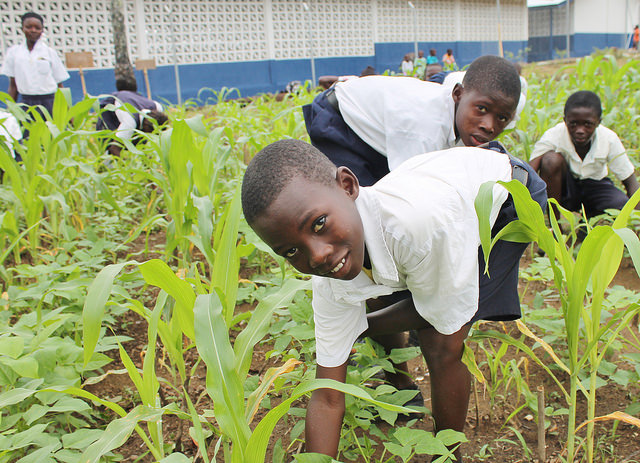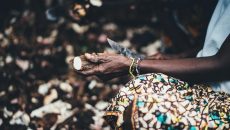Food insecurity is an unseen battle that is raging, especially among the youth of Liberia. This problem negatively affects the health of citizens in a country that is struggling to recover after a 14-year civil war, coupled with the effects of the recent Ebola outbreak.
Food insecurity is a situation where people lack secure access to sufficient amounts of safe and nutritious food for normal growth and development and an active and healthy life. It may be caused by the lack of food, the insufficient purchasing power of the affected population, inappropriate distribution or inadequate use of food at the household level.
A strong indicator of chronic food insecurity, especially in children, is stunted growth. Because children do not receive the necessary nutrients and vitamins, they grow at a much slower rate than what is normal for their age.
Though Liberia has managed to reduce its chronic malnutrition rates among under-fives from ‘critical’ levels to ‘serious’ (42 percent in 2010 to 36 percent in 2012), it stands at the verge of a serious nutritional crisis. Liberia is one of the countries that failed to achieve the United Nations Millennium Development Goal of halving the proportion of people suffering from hunger by 2015.
This was measured by two different indicators: the prevalence of undernourishment, monitored by the Food and Agriculture Organization, and the prevalence of underweight children under five years of age, monitored by the United Nations Children’s Fund and the World Health Organization.
In FAO’s 2015 State of Food Insecurity report, Liberia is classified as high food insecure country with 29 percent of its population undernourished. The report also highlighted an alarming increase in the number of people undernourished from 600,000 in 1990 to 1.4 million in 2014, a 139.4 percent increase, which points to a need for immediate action to revert the situation.
If Liberia wants to achieve the dream of becoming a middle-income country by 2030, every effort needs to be put into place to reduce food insecurity and avoid the long-term consequences on the health, productivity and mental development of its largely young population.
The government-led 2012 Comprehensive Food Security and Nutrition Survey found that a fifth of all households in Liberia is food insecure, with the highest rates found in Bomi at 55 percent, Grand Kru at 46 percent, and River Cess at 45 percent. Chronic malnutrition rate remains high nationally at 36 percent, and infant and young child feeding practices are poor.
Despite being blessed with favorable agricultural environment, the bulk of Liberia’s staple food, rice is imported from Asia while most of the vegetables including groundnut, beans, and tomatoes are imported from Guinea or Cote d’Ivoire either due to low agricultural productivity or lack of basic infrastructure by farmers who do not have access to loan from banks.
The Government of Liberia in collaboration with international partners, local and international NGOs have launched several initiatives with the aim of increasing agricultural production especially for staples like rice, cassava and plantain, yet nation average production remains low compared to countries in the sub-region.
If Liberia must overcome the challenges associated with food insecurity, the government must give high priority to ensuring quality increased agricultural production and integrated nutritional security programs. This is necessary to mitigate the effects of malnutrition and its underlying causes.
Featured image courtesy of USAID Food and Enterprise Development Program for Liberia (FED) / Nico Parkinson



